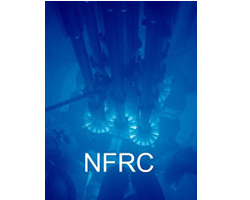Coal Can Compete Successfully With Crude Oil

By Clinton E. Crackel, Co-Founder and Co-Chairman, Nuclear Fuels Reprocessing Coalition
November 12, 2017 - Many in Congress and the petroleum industry don’t want the Fischer-Tropsch coal to liquid synthetic fuel process to compete with crude oil even though it is an excellent source of fuels similar to those refined from crude oil. At the present time, we don’t have this alternative fuel source available in the event of shortages in crude oil drilling and refining operations. It should also be noted that many of the oil companies supply natural gas.
Along these same lines, the renewable (green) energy companies successfully lobbied for the enthusiastic public support of such electric generating sources as wind and solar even though these sources are so inefficient they can’t meet baseload electricity demands. By promoting the environmental benefits of such energy sources, the green energy moguls were even able to line their pockets with money from taxpayer funded subsidies. Now they are trying to convince our policy makers that a baseload demand for electricity doesn’t exist.
Granted, if I was being paid to espouse big oil, natural gas or renewable energy I would be doing so. But since I’m not getting paid to write these articles, I’m entitled to call the shots the way I see them, plus I have a technical background in the electric utility arena.
Although fracking is used rather extensively to increase crude oil and natural gas production, fracking also increases local air pollution levels, prompts undesirable seismic events and contaminates local clean water supplies. Nonetheless, the oil companies successfully lobbied Congress to grant various exemptions to oil and gas production, including fracking, from environmental protection legislation including the Clean Air Act, Clean Water Act, Safe Drinking Water Act, and others. The oil companies also obtained favorable legislation and ordinances in numerous states and municipalities supporting fracking.
Because of its detrimental effects on our environment, the political tide against fracking is getting stronger. Many state and local governments now prohibit or severely restrict the use of fracking, and many more are in the process of considering legislation and ordinances to do so.
Regrettably, irreversible damage to the environment in areas where fracking has occurred or is occurring may have already been done, especially to clean water supplies. In light of the recent hurricanes forcing Puerto Ricans to risk their health by collecting drinking water from an EPA superfund site, I fear many communities hosting fracking sites will be required to draw drinking water from groundwater sources contaminated by fracking chemicals and high concentrations of radium-226 and radium-228 (bone seekers). Also, radon levels are rising in homes in and near fracking sites.
Another undesirable effect of fracking is radioactively contaminated oilfield filter socks. There have been instances of mounds of highly contaminated socks being left in uncontrolled areas because of the lack of disposal sites licensed for the disposal of low level radioactive waste.
Obviously, the issue of radioactive waste not being properly disposed of concerns me because I also have a technical background in radioactive waste management.
Contrary to the highly undesirable and potentially devastating environmental and health issues associated with fracking, coal doesn’t require fracking.
Considering the environmental benefit of mining coal instead of fracking, the Fischer-Tropsch coal to liquid synthetic fuel process should be used as a viable alternative to fracking, and as the principal means of offsetting shortages in supplies of petroleum products refined from crude oil in the United States.
.png)
Clinton Crackel

